The 23 Stories That Defined 2023
Emory University’s 2023 was marked by moments of unity and division. The University debuted new identity spaces and strengthened its partnership with the College of the Muscogee Nation, while campus protests and demonstrations related to the Israel-Palestine conflict and the Atlanta Public Safety Training Center created friction within the Emory community. Administrative changes also shaped life on campus, with the introduction of a campus life dean and new leaders for the Emory College of Arts and Sciences and Oxford College.
The Emory Wheel has compiled 23 of the many stories that defined this year at Emory.
This page is best viewed on desktop.

African American studies Ph.D. program gears up to accept first cohort of students
By Jaden Song / Feb. 1
Out of 105 candidates, Emory’s African American Studies Ph.D. program accepted four students to join the inaugural class starting in fall 2023, 52 years after the University established the first degree-granting African American studies program in the South. The program plans to accept four to five new students each year.
This is the first African American studies Ph.D. program in the Southeast and the first at a private university in the South. Emory also has the largest collection of African American studies Ph.D. faculty in the United States.
Samuel Candler Dobbs Professor of Religion and African American Studies Dianne Stewart said the program will encourage “cutting-edge” research by encouraging collaboration between faculty and doctoral students and invigorating the undergraduate curriculum.

Emory lifts vaccine requirements amid COVID-19 policy changes
By Matthew Chupack & Madi Olivier / Feb. 9
Nearly three years after the COVID-19 pandemic forced Emory to send students home, University President Gregory Fenves announced the University would no longer require students, faculty and staff to receive the COVID-19 vaccine. The University implemented the vaccine requirement for students in April 2021, later expanding this requirement to faculty, staff and post-doctoral fellows in July 2021.
Additionally, students, faculty and staff were no longer required to report if they tested positive before returning to campus.
Emory Healthcare loosened COVID-19 precautions later, lifting COVID-19 vaccination requirements for employment or medical staff privileges and removing mask mandates in outpatient settings in July.
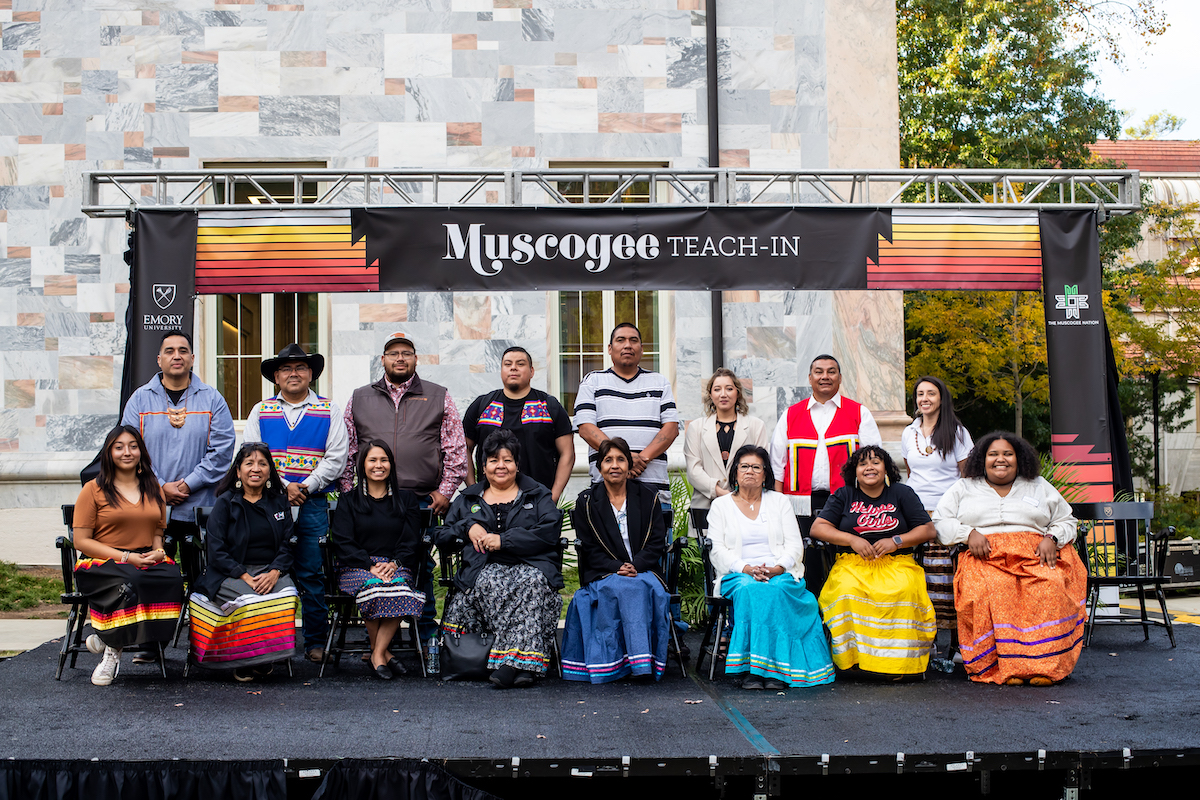
Emory plans to develop Indigenous studies program in partnership with the College of the Muscogee Nation
By Matthew Chupack & Madi Olivier / Feb. 15
The Andrew W. Mellon Foundation awarded Emory a $2.4 million grant, of which the College of the Muscogee Nation (CMN) (Okla.) received $1 million, to create “collaborative and independent programs” dedicated to promoting Native American and Indigenous studies and preserving the Mvskoke language.
CMN President Monte Randall said that the institution will work with Emory to create an indigenous studies minor.
“Thanks to the wisdom of students, and to the foresight of leaders of the College of the Muscogee Nation and Emory University, we are at this transformational point in our journey together,” Cahoon Family Professor of American History Malinda Maynor Lowery wrote in an email to the Wheel.
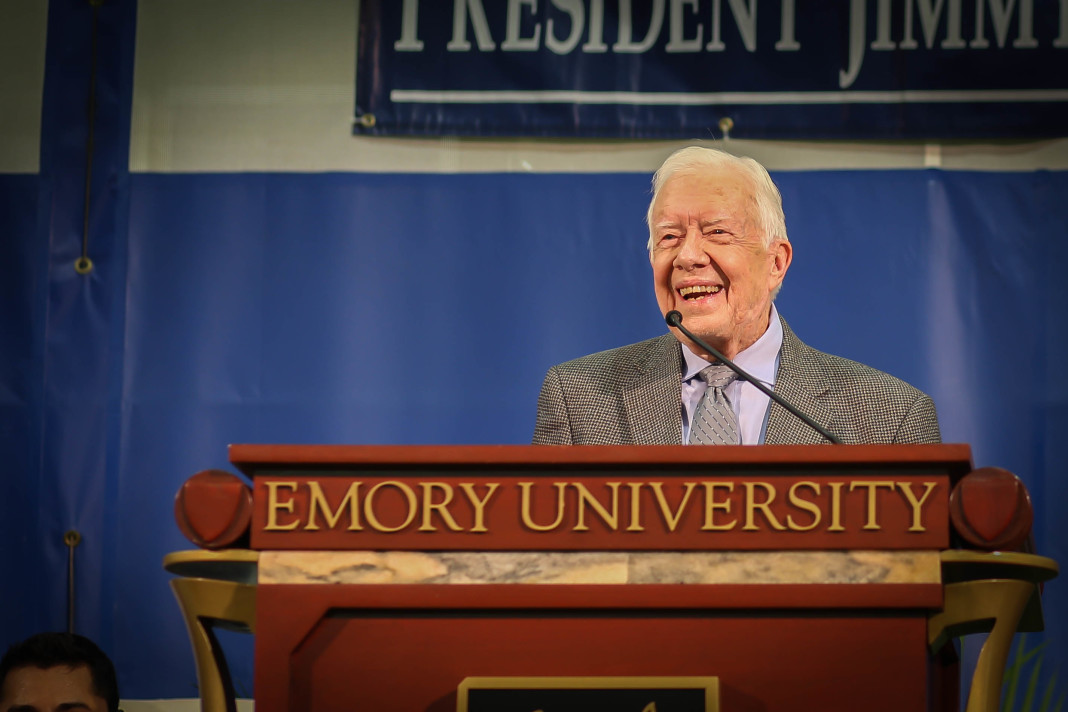
Former U.S. President Jimmy Carter enters hospice care
By Madi Olivier / Feb. 18
Over 40 years after he joined the Emory community as a university distinguished professor in 1982, former U.S. President Jimmy Carter entered hospice care on Feb. 18 to “spend his remaining time at home with his family,” the Carter Center said in a February statement.
Carter, who turned 99 on Oct. 1 and is the oldest living president in U.S. history, underwent treatment at Emory’s Winship Cancer Institute and the Emory University Hospital for several health concerns over the past eight years.
The former president has deep ties to Emory, holding the keynote speaker role for the annual Carter Town Hall’s first 38 years. The Carter Center, which Carter founded alongside his wife Rosalynn Carter in 1982, has partnered with Emory to advance health and human rights.
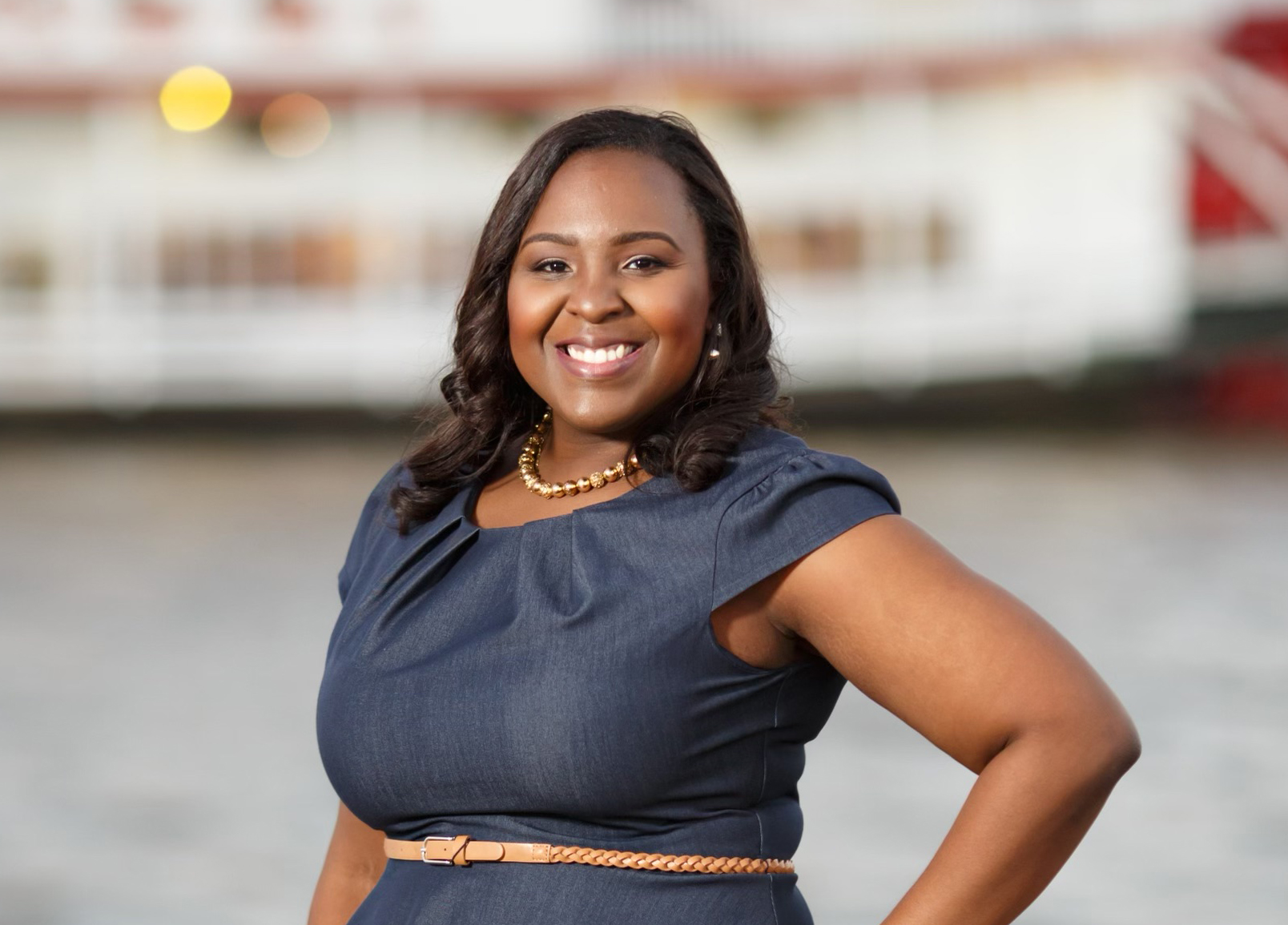
Odejimi named new Campus Life dean of students, associate vice president
By Ashley Zhu / March 15
Emory selected Kristina Bethea Odejimi as dean of students and associate vice president for belonging, engagement and community in the spring. She officially began the role on June 1.
Odejimi, who previously served as Bowdoin College’s (Maine) dean of students, manages eight departments under Campus Life, including Belonging and Community Justice, Deliberation and Dialogue, Student Case Management and Intervention Services, the Barkley Forum for Debate and Student Involvement, Leadership and Transitions.
“I’m thrilled to join Campus Life and embrace Emory’s ongoing commitment to excellence, student flourishing and service to humanity,” Odejimi wrote in a March 15 University press release.
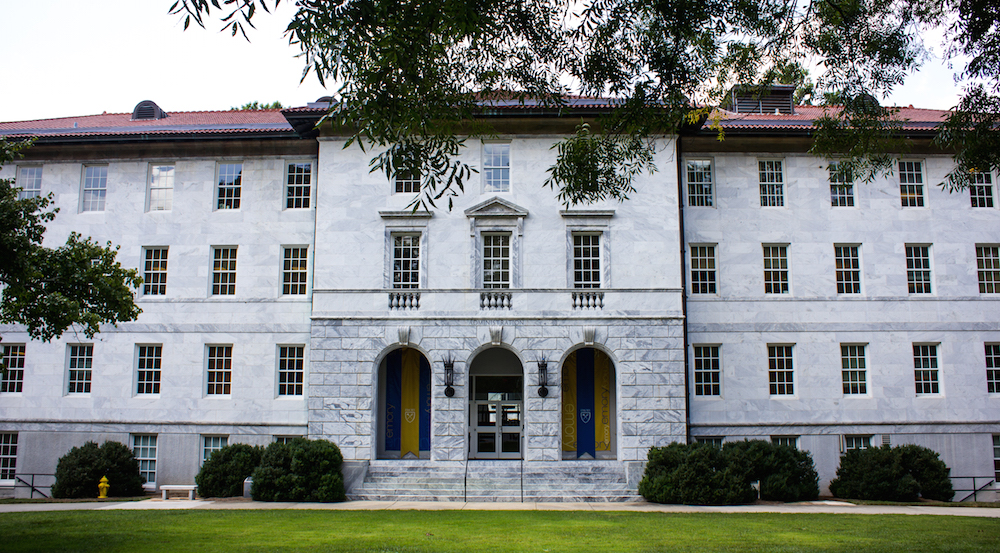
Emory introduces new general education requirements, retains physical education requirement
By Sandy Ge / March 25
The Blue General Education Requirement (GER) Plan went into effect for all incoming students in fall 2023, changing the expectation that students complete a total of 18 courses across five categories to 15 courses across 10 areas of study. The new plan also requires an experiential learning opportunity, such as an internship. Students who entered Emory before fall 2023 are required to complete the previous GERs.
Under the Blue GER Plan, students can no longer fulfill GERs with Advanced Placement and International Baccalaureate credits, with the exception of one of two Intercultural Communications courses and the first-year writing requirement.

Former Students, faculty debate DeKalb County’s plans to construct concrete path in Lullwater
By Spencer Friedland / March 29
Emory’s Office of Master Planning, DeKalb County and the PATH Foundation proposed constructing a 10-foot wide cement path through Lullwater. The path would allow DeKalb County to repair sewers overflowing into county creeks among other environmental benefits, according to Associate Vice President for Planning and Engagement David Payne.
However, the Emory Ecological Society published a joint statement with nine student organizations outlining how the path could negatively impact the environment, such as by threatening the starvine and Chattahoochee crayfish populations.
Additionally, the Student Government Association voted in favor of a resolution recommending that project leaders consult with the Muscogee (Creek) Nation to account for the land’s “cultural and traditional ecological significance,” while the University Senate sent a request to University President Fenves for more transparency about the project.

Alliance reimagines Emory Village after COVID-19 closures
By Eva Roytburg & Amelia Dasari / April 3
Although this year was marked by new businesses moving into Emory Village, such as Sweetgreen, Cava and Savi Provisions, the shopping center has continued to feel the impact of the COVID-19 pandemic. The hit to local business during this time pushed the Emory Village Alliance to spearhead an ordinance revising the Village’s zoning overlay to “ensure a compatible and diverse mix” of businesses in the shopping center. The DeKalb County Board of Commissioners delayed the decision until late April before ultimately voting in favor of the motion, which is currently waiting for a public hearing.
The proposed changes to the overlay include counting porches and open-air patios as a second story to meet the two-story minimum required of Village buildings, removing minimum square-foot requirements for housing and maximum square-foot requirements for offices to make the Village more appealing for business owners.
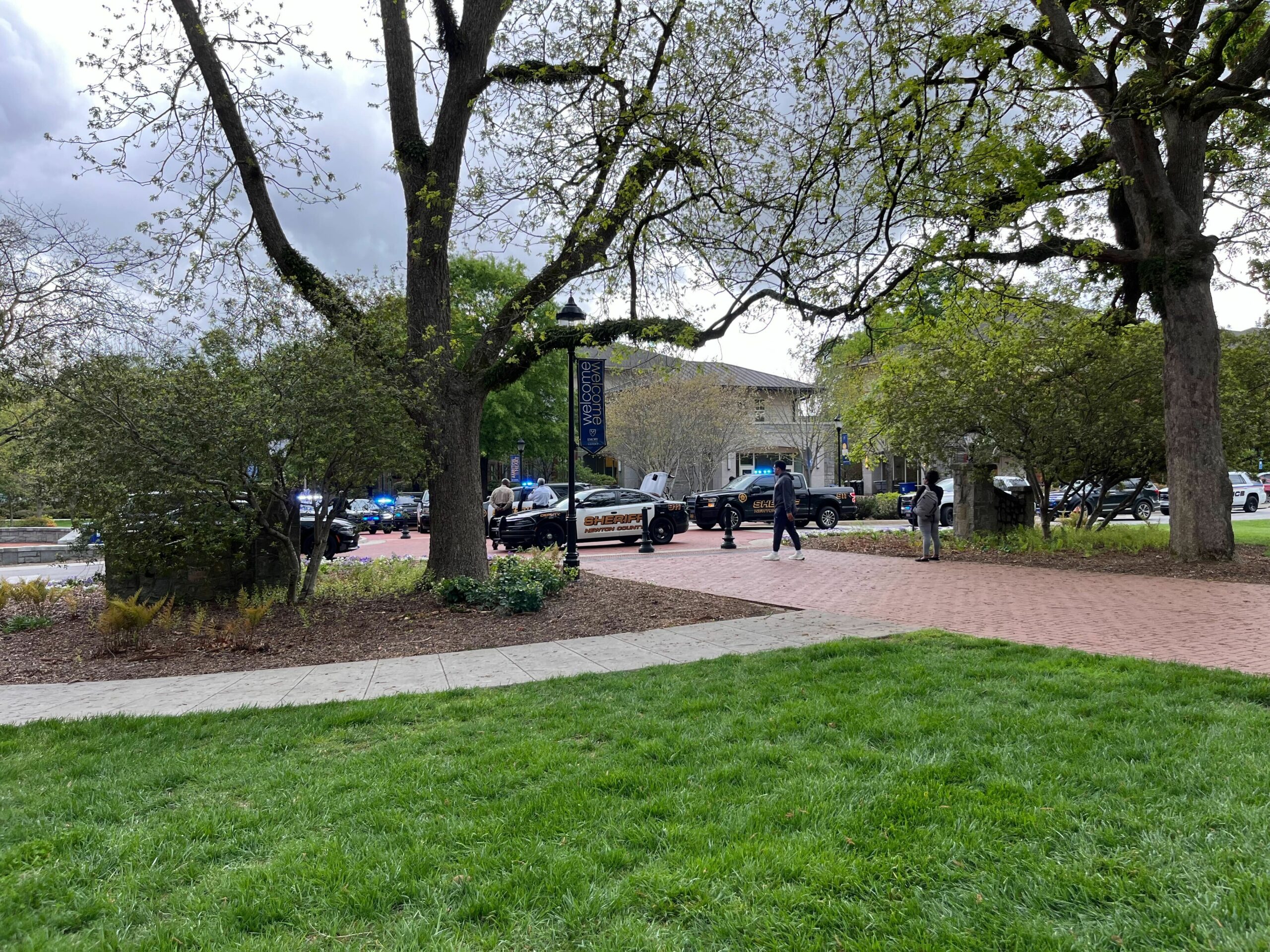
Emory lifts shelter-in-place order on Oxford campus following ‘police emergency’
By Matthew Chupack & Sarah Davis / April 14
Content Warning: This article contains references to gun violence
Oxford College campus community members sheltered in place for nearly 1.5 hours on April 14 while the Emory Police Department (EPD) and local law enforcement agencies investigated a report that an individual had a handgun on campus. Law enforcement concluded that there was no threat to the Emory community but did not release information about the individual’s relation to Emory or how they gained access to the dorm.
Some students expressed frustration with Emory’s communication during the shelter-in-place, as the initial University alert only stated that there was a “police emergency” in Murdy Hall.
“I still kinda feel unsafe being on campus because I don’t know if the building has been evacuated, I don’t know if they found anyone,” Molly Jones (24Ox) said after sheltering in the Oxford College Library.
In an email to the University community later that day, EPD Deputy Chief Burt Buchtinec acknowledged the concern caused by the event and said that the department’s actions “were pursued as a cautionary measure.”
If you or someone you know is struggling in the aftermath of gun violence, you can reach Emory’s Counseling and Psychological Services at (404) 727-7450 or https://counseling.emory.edu/ or the Substance Abuse and Mental Health Services Administration Disaster Distress hotline 24/7 at +1 (800) 985-5990.

University Senate reevaluates 2017 student center resolution, estimates at least $3 million to meet net-zero goal
By Marian Moss / April 23
Despite the University Senate’s 2017 endorsement of a resolution to decrease the Emory Student Center’s (ESC) emissions to net-zero by the end of 2022, only 15% of the ESC’s energy was sustainable in April, according to Vice President and Chief Planning Officer of Campus Services Robin Morey. Morey wrote in an email to the Wheel in April that “unprecedented events related to the COVID-19 pandemic” prevented Emory from reaching net-zero, which would include using renewable energy sources to offset greenhouse gas emissions and cut carbon emissions close to zero.
Morey noted that Emory is working to meet the ESC’s goal, which would likely cost about $3 million. Developments include developing a conceptual net-zero design for the ESC and hiring a sustainability engineer and energy analyst.

Emory selects Barbara Krauthamer as next Emory College of Arts and Sciences dean, Badia Ahad as next Oxford College dean
By Matthew Chupack & Madi Olivier / April 25
Former University of Massachusetts Amherst College of Humanities and Fine Arts Dean Barbara Krauthamer joined the Emory College of Arts and Sciences (ECAS) as its newest dean in July after the University’s spring announcement of her appointment. Krauthamer assumed the role over a year after former ECAS Dean Michael Elliott stepped down from the position in June 2022 to become the president of Amherst College (Mass.).
This announcement came less than a month before the University named Badia Ahad as the next dean of Oxford College. Former Oxford College Dean Douglas Hicks departed from the position in April 2022.
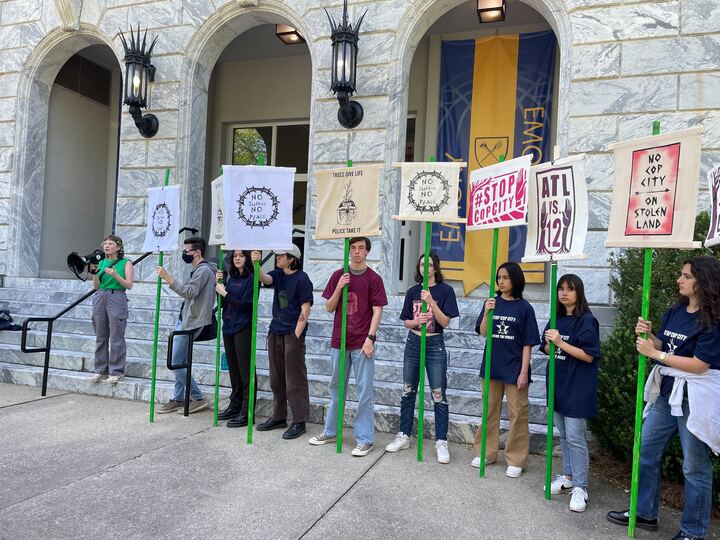
EPD removes ‘Stop Cop City’ student protestors from Quad
By Sarah Davis & Heather Lu / April 25
A student-organized protest against the Atlanta Public Safety Training Center — commonly referred to as “Cop City” — ended in the early hours of April 24 after the Emory Police Department (EPD) asked protesters to vacate the University’s Atlanta campus Quadrangle. Campus police called the Atlanta Police Department for backup. Assistant Vice President of University Communications Laura Diamond wrote in an email to the Wheel that EPD officers “calmly” asked students to leave and explained that “the next step would be arrest” if they did not do so.
However, Emory Stop Cop City alleged that “police presence and threats of arrest only escalated” as the protesters gathered their belongings. This caught the attention of the Emory community, with students and faculty continuing to speak out against “Cop City” and the University’s response to the April protest throughout the year.
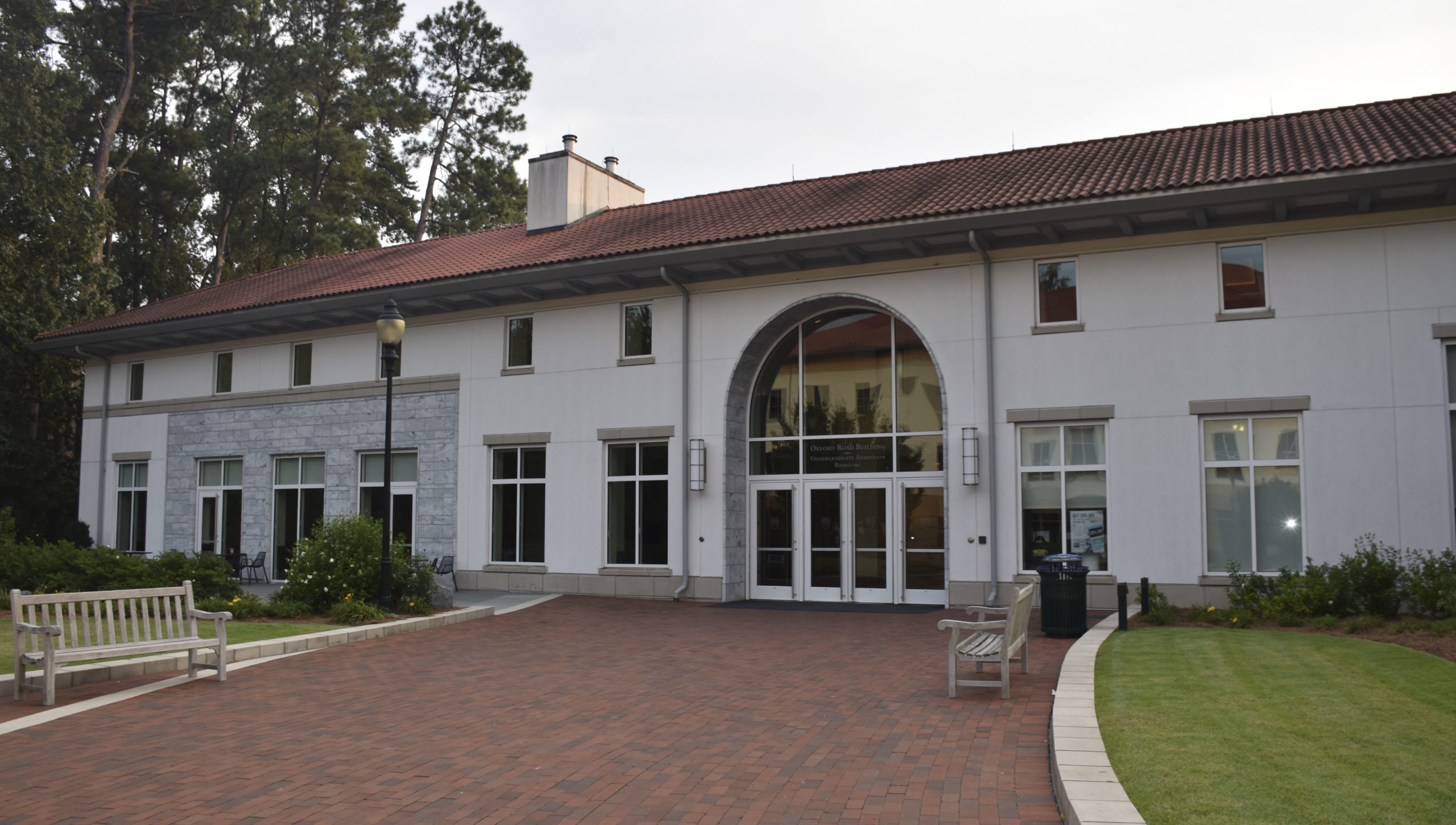
‘I am deeply concerned’: Emory president responds to Supreme Court affirmative action decision
By Matthew Chupack & Madi Olivier / June 29
The Supreme Court of the United States struck down affirmative action on June 29, barring U.S. colleges and universities from explicitly considering race during the admission process. In the 40-page opinion of the conservative majority, Justice John Roberts wrote that students must be treated based on their individual experiences, not race.
President Fenves expressed disagreement with the ruling in an email to the University community, writing that diversity would remain a “bedrock value” at Emory. In response to the ruling, Emory added new essay prompts to this year’s application that are aimed at understanding applicants’ cultural backgrounds, such as asking students to name a “community” they have been a part of and how their participation changed the community for the better.

Emory professors break down Fulton County Trump indictment
By Sarah Davis / Aug. 17
A Fulton County grand jury indicted former U.S. President Donald Trump and allies for their attempts to overthrow the 2020 presidential election in Georgia. This marked Trump’s fourth criminal indictment in the course of five months. District Attorney of Fulton County Fani Willis used Georgia’s Racketeer Influenced and Corrupt Organizations Act (RICO) in her investigation.
Charles Howard Candler Professor of Law Morgan Cloud broke down the significance of these RICO charges and Associate Professor of Political Science Bernard Fraga explained how the indictment might affect the 2024 presidential race.

Emory ranks No. 24, dropping for second consecutive year
By Madi Olivier & Spencer Friedland / Sept. 18
Emory fell to No. 24 in the U.S. News & World Report’s (USNWR) “Best Colleges” rankings for national universities, earning its lowest ranking since being listed as No. 25 in 1994. Last year, Emory dropped to No. 22 after holding the No. 21 spot for five years.
The USNWR altered their ranking methodology this year to place more emphasis on “graduating students from different backgrounds” while removing class size, faculty with terminal degree, alumni giving and high school standing from consideration.
In March, the USNWR ranked the Nell Hodgson Woodruff School of Nursing master’s program and Wallace H. Coulter Department of Biomedical Engineering Ph.D. program No. 1 in their respective categories in the 2024 “America’s Best Graduate Schools” guide. However, both the medical school and Emory School of Law earned their lowest rankings in a decade.
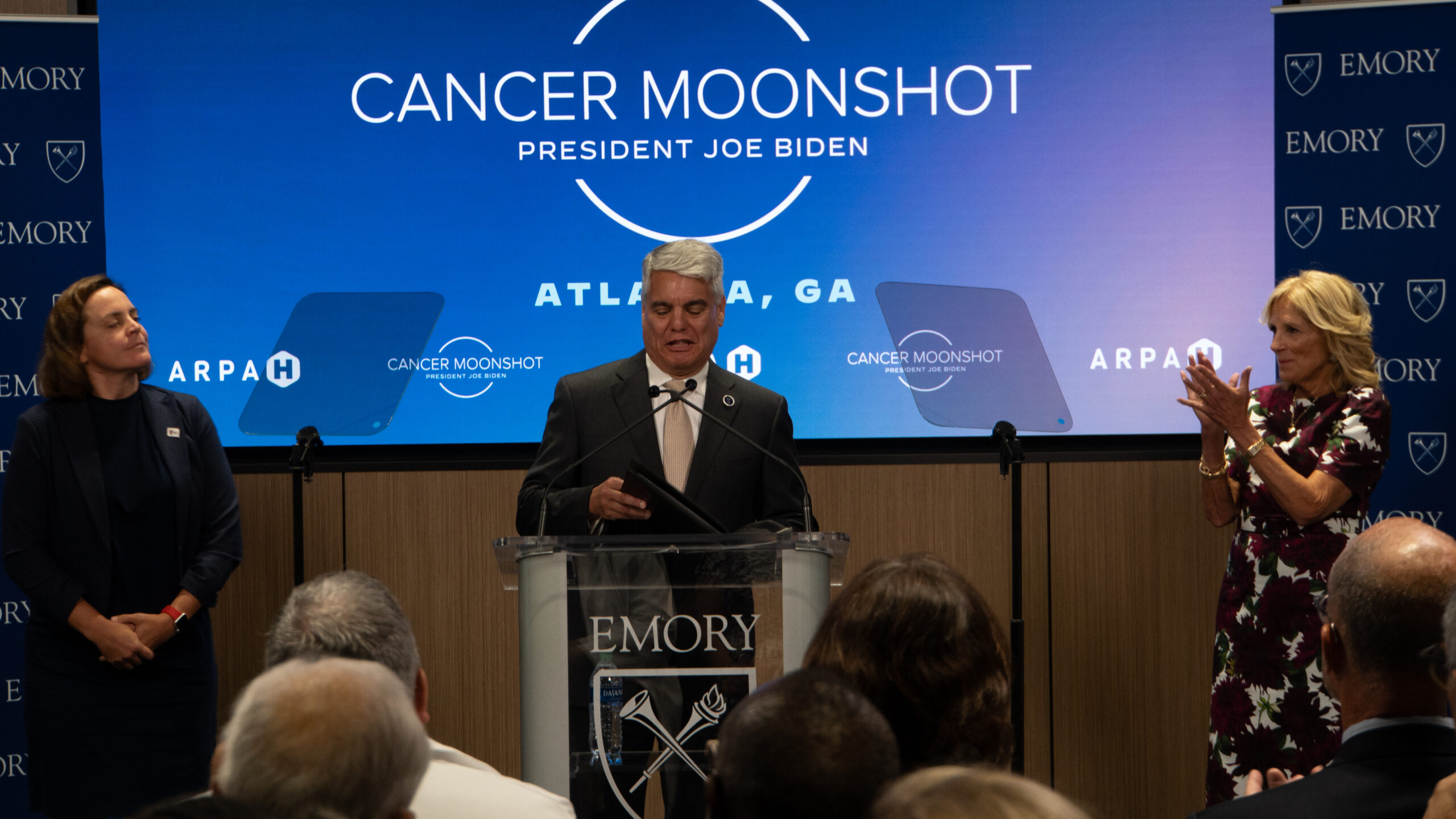
Jill Biden visits Emory, discusses CUREIT project
By Spencer Friedland & Kari Zhou / Sept. 20
First Lady Jill Biden discussed the Curing the Uncurable via RNA-Encoded Immunogene Tuning (CUREIT) project during a visit to Emory’s Health Sciences Research Building on Sept. 15. Philip Santangelo, a professor in the Wallace H. Coulter Department of Biomedical Engineering at Emory and the Georgia Institute of Technology, is leading CUREIT in hopes of using mRNA technology to train immune systems to improve outcomes for patients battling cancer and other diseases.
In February 2022, the Biden administration reginited the Cancer Moonshot Initiative to mobilize the effort to end cancer. The Biden Cancer Moonshot then launched CUREIT, which is funded by the Advanced Research Projects Agency for Health (ARPA-H), in August.

Emory ramps up AI initiatives
By Spencer Friedland / Oct. 4
Emory increased its investment in artificial intelligence (AI) research this year through the AI.Humanity project. In October, the University officially inaugurated the Atlanta Interdisciplinary AI network, which is dedicated to combating racial and civil justice issues with AI. Emory also held an opening ceremony for the Center for Artificial Intelligence Learning in September.
Quantitative Theory and Methods Department Chair Clifford Carrubba said that Emory’s center is making one of higher education’s most “aggressive” and “significant” investments in AI.
This comes as students were able to declare a minor in AI for the first time this semester. Seven students signed up for the minor by October, although Computer Science Department Chair Vaidy Sunderam expects the number of students to grow to several hundred in the next few years.

Goizueta requires clubs to accept all students
By Amelia Dasari / Oct. 4
Goizueta Business School implemented a new policy that requires clubs to accept all interested students as general body members. The initiative aims to promote inclusivity after some students were rejected from upward of 15 clubs, according to Goizueta Senior Associate Dean of Undergraduate Education Andrea Hershatter. The policy also bars first-year students from initially applying for executive board positions, instead requiring them to undergo club training or promotional processes as general body members.
While some students such as Emory Women In Business Programming Chair and 180 Degrees Consulting Team Lead Cate Navarrete (26B) applauded the policy for making clubs more equitable, other students opposed the change. Goizueta Investment Management Group Vice President Sean Walsh (26C) explained that the policy may bar students from joining executive boards even if they are the most qualified.
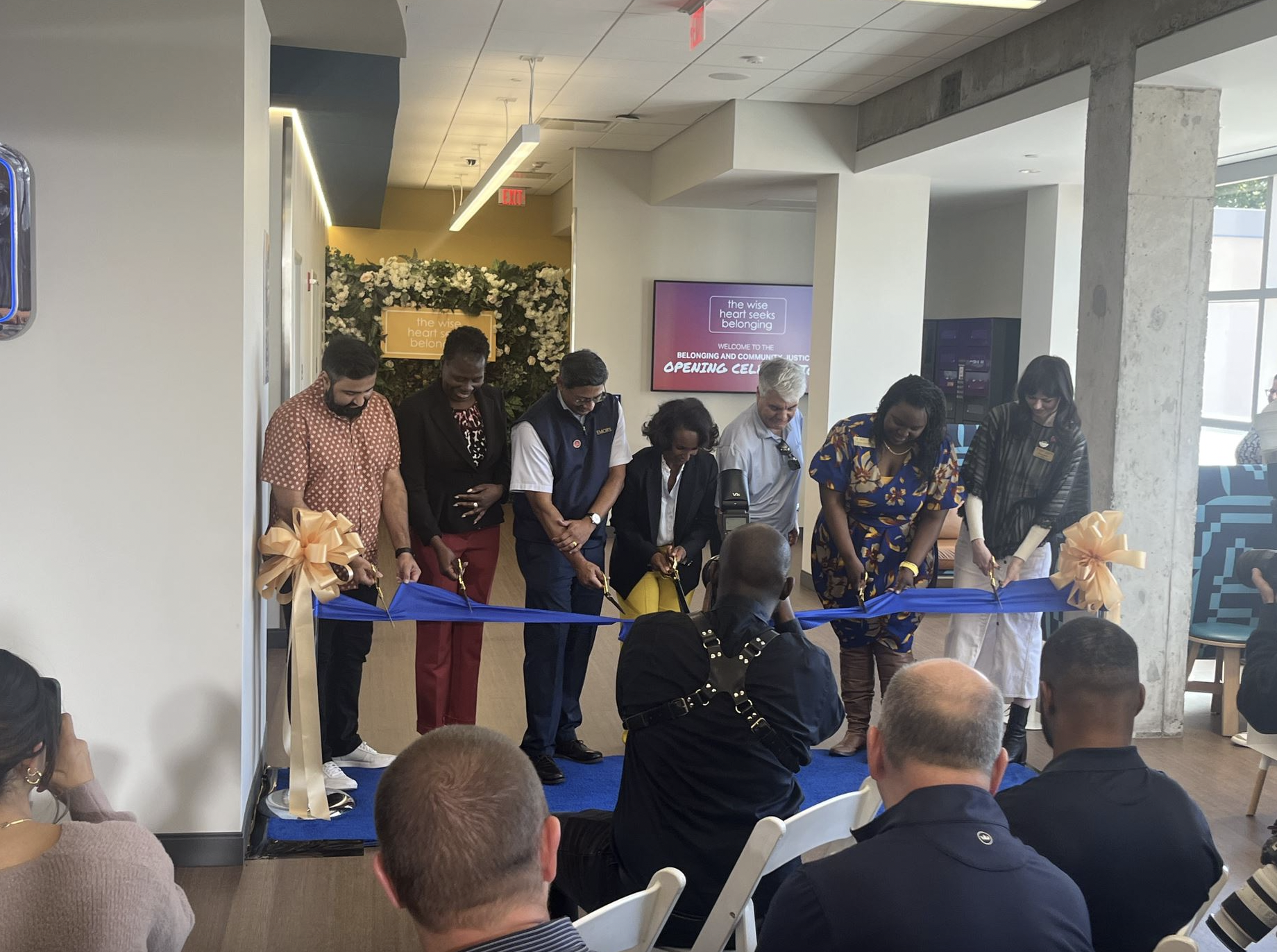
Emory celebrates new identity spaces, plans to design space for low-income, first generation students
By Holden Vance / Oct. 24
The Belonging and Community Justice Identity Spaces opened on the newly-constructed third floor of Cox Hall at the start of the semester after moving from the bottom floor of the Alumni Memorial University Center (AMUC).
The University held a ribbon cutting ceremony on Homecoming weekend to celebrate the new spaces, which include the Center for Women, Centro Latinx, Emory Black Student Union, the Office of Lesbian, Gay, Bisexual, Transgender Life and the Asian Student Center.
The University will add Emory First, a group for low-income and first generation students, to the floor by August 2024. The group spent the fall semester gathering opinions on how to use and design the space, according to Emory First intern Terrence Lurry (25C).
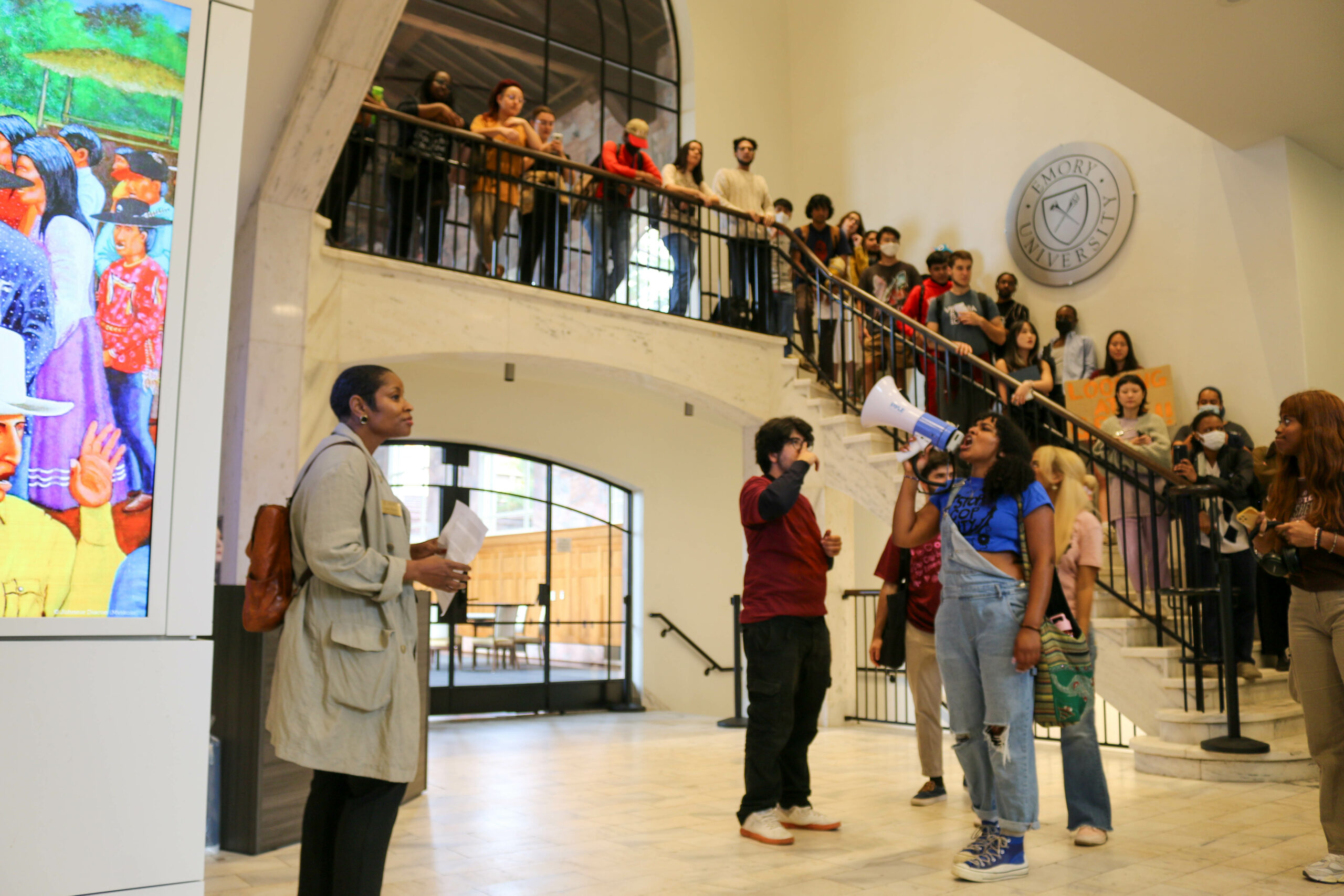
University president denounces ‘antisemitic’ rhetoric at campus protest
By Matthew Chupack, Sarah Davis & Jack Rutherford / Oct. 26
President Fenves condemned the use of “antisemitic phrases and slogans” during an on-campus protest denouncing Emory’s financial ties to the Atlanta Public Safety Training Center and demanding that the University condemn the death of Palestinians in the Israel-Hamas war. The president wrote that he was “appalled” by some of the protesters’ actions in an email to the Emory community.
While Fenves did not specify which of the protestor’s phrases were antisemitic, the crowd used the controversial chant “From the river to the sea, Palestine will be free” during the rally, drawing backlash from some community members.
However, Emory Stop Cop City (ESCC), which organized the protest, rejected claims of antisemitism in a statement posted online a few days after the president’s email.
“Shared content related to the protest has weaponized vagueness and misleading information in a deeply anti-Black diversion from the goals of ESCC,” the group wrote.
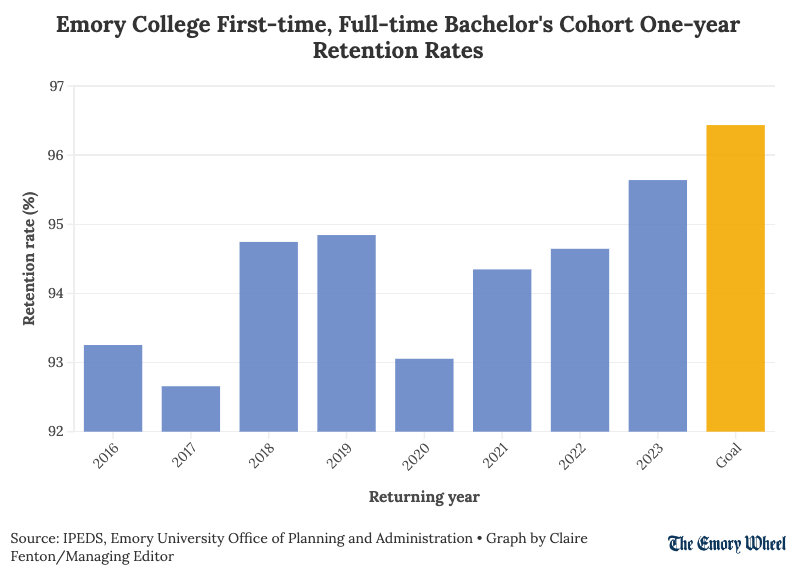
1 in 25: Leaving the nest
By Eric Jones / Nov. 27
Emory’s first-year retention rate has been consistently lower than peer institutions for the past several years, with Emory College and Oxford College reporting a 2023 first-year retention rate of 96.2% and 93.11%, respectively. Since 2020, peer institutions such as Vanderbilt University (Tenn.) have largely maintained first-year retention rates between 96% and 97%.
Several former students left to attend an institution with a specific academic program that is more highly ranked. Others, such as Jane Halpern, transferred after struggling socially on campus. Halpern, who left Emory in 2023, said that she “wasn’t getting the support” that she needed on campus and felt “exceedingly unhappy.”
The University’s low retention rates caught the attention of University administration, who aim to achieve a 97% retention rate. The Undergraduate Council’s Retention Task Force is working to increase Emory’s four-year graduation rate and plans to establish a student partnership committee to better support students.
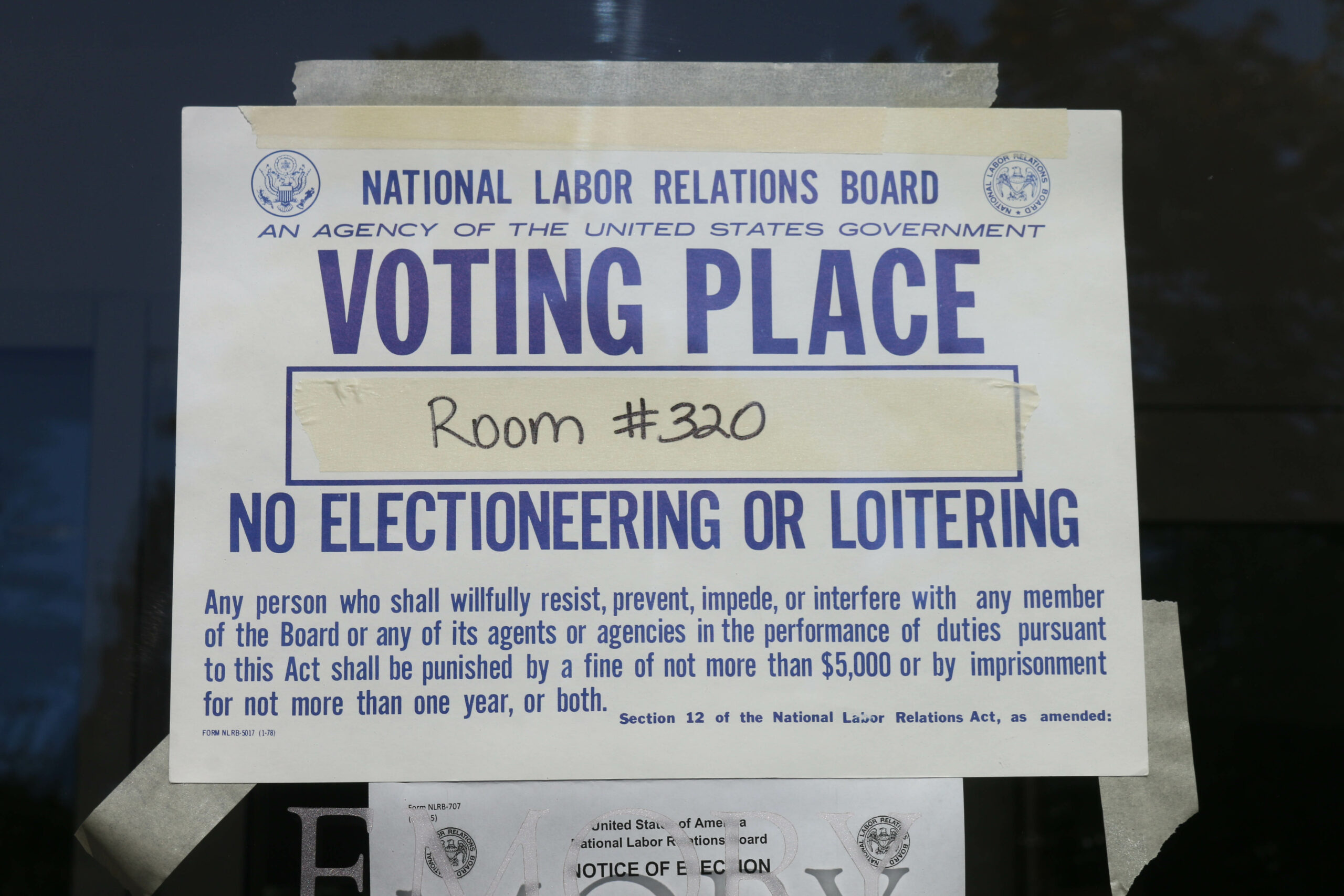
Laney graduate students vote to unionize
By Ilah Ross / Nov. 28
Laney Graduate School Ph.D. students voted to officially unionize after seven years of activism from EmoryUnite!, which earned recognition under the National Labor Relations Board. University administration is now required to negotiate a contract with graduate students, making Emory the first private university to have a graduate-worker union in Georgia and the second in the South.
“The people have spoken loud and clear,” said EmoryUnite! co-Chair David Meer (27G). “We want a union.”
Among EmoryUnite!’s demands is an increase in graduate student stipends, which currently average at $36,637.53 — about $3,000 below Atlanta’s living wage. Other goals include improved medical insurance coverage and more support for student parents.

Emory hosts tribute service for Rosalynn Carter
By The Emory Wheel / Nov. 28
After Rosalynn Carter died on Nov. 19 at 96 years old, Emory hosted a tribute service in the Glenn Memorial United Methodist Church. The former first lady was deeply connected with Emory as a Department of Women’s Studies Distinguished Fellow and founder of the Carter Center, which has partnered with Emory on health and human rights projects.
Rosalynn Carter’s husband of 77 years, former U.S. President Jimmy Carter — as well as U.S. President Joe Biden, First Lady Jill Biden and all living former first ladies — were among the service’s attendees. All roads in the vicinity of the church were closed and classes were moved to a virtual format to accommodate the service.
During the service, about 90 protestors gathered on a street corner adjacent to the church to criticize U.S. President Joe Biden’s support for Israel. A couple of hours later, seven counter protestors gathered across the street to express support for Israel. Emory students attended both demonstrations.
Stories compiled by Matthew Chupack, Sarah Davis, Madi Olivier and Spencer Friedland. Story summaries written by Madi Olivier and Spencer Friedland. Page designed by Claire Fenton.

